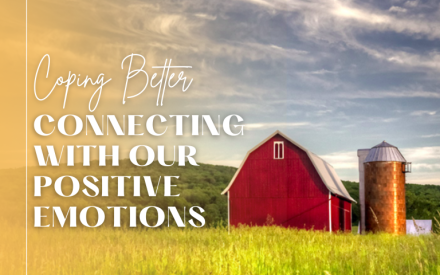Have you noticed feeling more irritable or less able to think clearly and concentrate after a night of bad sleep? You’re not alone. Sleep is as essential to your overall health as food and water are. Experience has probably shown us how essential good sleep is for how well our brains and bodies work the following day. Things like memory and concentration, as well as mood and emotion regulation are impacted. We also know from research that poor sleep reduces our ability to fight off viruses and infections, and is strongly correlated to overweight and obesity, poor heart health, type 2 diabetes and depression.
What Happens When We Sleep?
We go through five different sleep stages, cycling through them several times during a typical night’s sleep. Stages one and two are lighter stages of sleep. The third and fourth stages are deeper sleep. The fifth stage is Rapid Eye Movement (REM), or dreaming sleep. Getting enough of these deeper stages of sleep is important to our daytime wellbeing.
Sleep plays a vital role in restoring the body’s cells and overall functions, including removing toxins from the brain and other organs. Much of this tissue growth and repair happens during deeper non-REM stages of sleep. Researchers are still trying to understand the dreaming or REM stage of sleep. Based on what we do know, REM sleep is essential to integrating new memories and the brain reorganizing its experiences and emotions. It is incredibly important for learning and brain development, including how neural pathways get established and maintained.
What if I’m Not Getting Good Sleep?
Sleep disorders are regular patterns of insomnia or other issues that impact our ability to sleep well and deeply. Insomnia includes not being able to get to sleep in the first place, waking in the middle of the night, and/or waking too early.
Other disorders impact our ability to be able to sleep well and deeply throughout the night. You may be aware of these problems, or you may not, but still feel tired and like you weren’t able to get a good night’s rest. These kinds of sleep disorders can include Restless Legs Syndrome (RLS), where an unpleasant “creeping” feeling is experienced in the lower legs, or aches and pains throughout the legs – people will often move or kick their legs to get rid of the sensations. Another disorder is sleep apnea, where nighttime breathing is irregular or may even stop unexpectedly for brief periods. Sleep apnea can be serious, and there are several possible causes and treatments, so seeing your medical provider is important.
A medical provider can begin a process of determining what the potential causes might be for your sleep problems, and may order a sleep study. A sleep study evaluates your overnight body patterns and sleep stages, helping to figure out what the source of the problem is and what treatments may help.
We may sometimes not get good sleep, but it may not be a sleep disorder. Read on…
Common Reasons for Poor Sleep and What You Can Do
Do you have a beer or glass of wine before bed? Do you watch TV or play games on your smartphone right before bed? Do you drink caffeinated beverages after 2-3 p.m.? Many people feel that these things are relaxing and calming. However, sleep researchers have determined they negatively impact sleep quality. If you do any of these things and have trouble sleeping, consider changing your habits.
Other Good Ideas from Sleep Experts…
- Bedtime routine and getting to bed on time. It’s not just for kids! Adults need 7-9 hours of sleep per night, so start your relaxation routine and head to bed with plenty of time for all of your sleep cycles.
- Cool, dark room reserved for sleep. Not freezing, of course, but research shows that the temperature, lighting (i.e. darkness), and associating your bed and sleeping space with sleep and sex only (and not other activities, including reading) is very helpful for falling and staying asleep.
- Relax before bed. In a space outside of the bedroom, read, take a bath, write in a gratitude journal, or listen to calming music. In the last hour before bed, try not to use screens and dim the lights.
What if I Wake Up and Can’t get Back to Sleep?
If you’ve been awake in the middle of the night for more than 20 minutes (by your estimation), get out of bed. Find a calming, low-light, quiet other location to sit. Reading something mildly boring is ideal, with a glass of water or warm milk. When you start to drift off, head back to bed. (Do NOT do work or other stressful stuff.)
What About Naps?
Short naps are a big “Yes!” 20-30 minute naps can help in the middle of a long day, and are shown to aid in energy, concentration and memory tasks. Short naps in the middle of the day do not appear to impact how deep or long you sleep at night. Longer naps (unless you’re sick) may actually have an adverse effect on your daytime wellbeing and your nighttime ability to fall and stay asleep.
How Much Sleep?
| Age Group | Recommended Hours of Sleep Per Day |
| 0–3 months | 14–17 hours (National Sleep Foundation)1No recommendation (American Academy of Sleep Medicine)2 |
| 4–12 months | 12–16 hours per 24 hours (including naps)2 |
| 1–2 years | 11–14 hours per 24 hours (including naps)2 |
| 3–5 years | 10–13 hours per 24 hours (including naps)2 |
| 6–12 years | 9–12 hours per 24 hours2 |
| 13–18 years | 8–10 hours per 24 hours2 |
| 18–60 years | 7 or more hours per night3 |
| 61–64 years | 7–9 hours1 |
| 65 years and older | 7–8 hours1 |
References
- Hirshkowitz M, Whiton K, Albert SM, Alessi C, Bruni O, et al. The National Sleep Foundation’s sleep time duration recommendations: methodology and results summary. Sleep Health. 2015;1(1):40–43.
- Paruthi S, Brooks LJ, D’Ambrosio C, Hall WA, Kotagal S, Lloyd RM, et al. Recommended amount of sleep for pediatric populations: a consensus statement of the American Academy of Sleep Medicine. J Clin Sleep Med. 2016;12(6):785–786.
- Watson NF, Badr MS, Belenky G, et al. Recommended amount of sleep for a healthy adult: a joint consensus statement of the American Academy of Sleep Medicine and Sleep Research Society. Sleep. 2015;38(6):843–844.
https://www.cdc.gov/sleep/about_sleep/how_much_sleep.html
https://www.sleepfoundation.org/sleep-hygiene/napping
https://www.cdc.gov/sleep/about_sleep/key_disorders.htmlhttps://www.cdc.gov/sleep/about_sleep/how_much_sleep.html

 Five tools to address stress
Five tools to address stress February is Heart Health Month — Achieve a Happy Heart!
February is Heart Health Month — Achieve a Happy Heart! Coping Better Episode 7 | F.A.R.M.(ing) a Healthy Future
Coping Better Episode 7 | F.A.R.M.(ing) a Healthy Future


